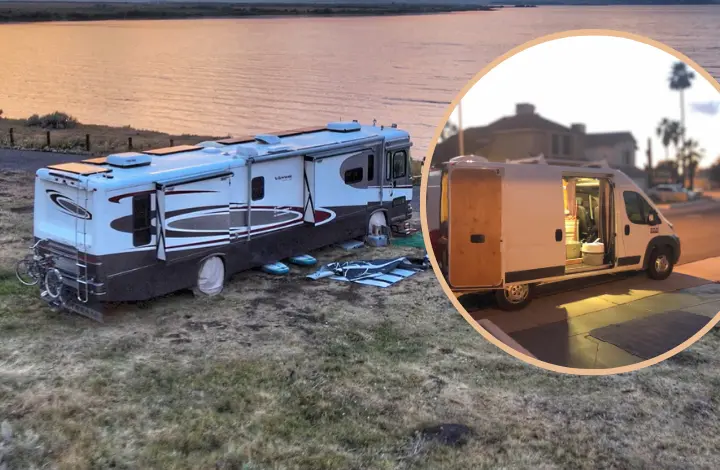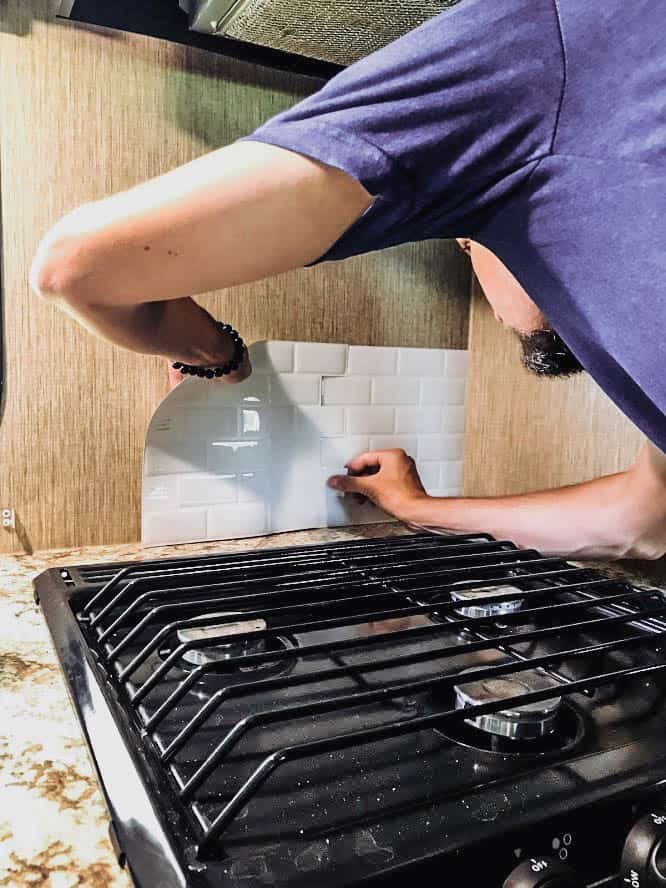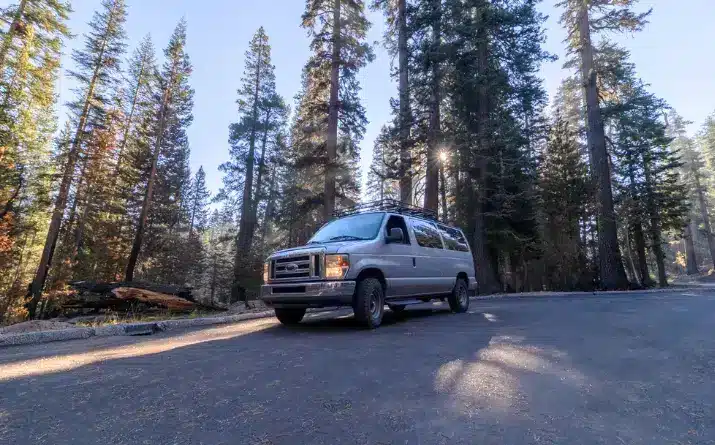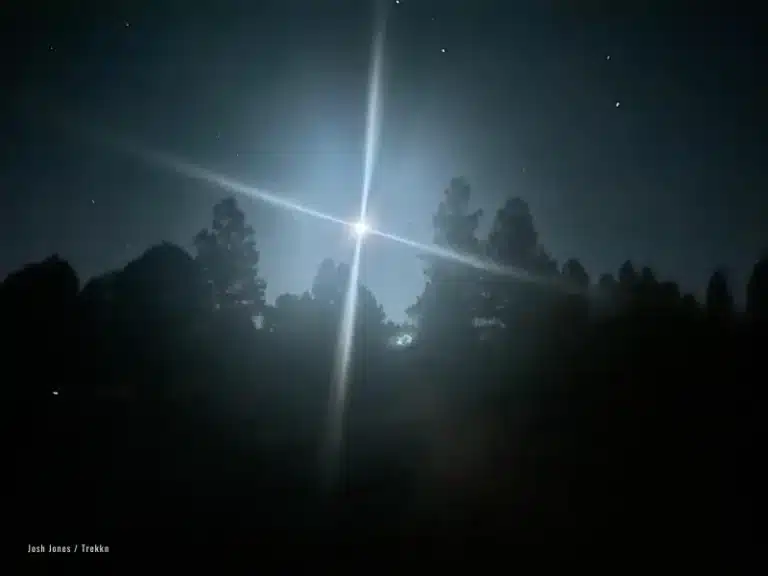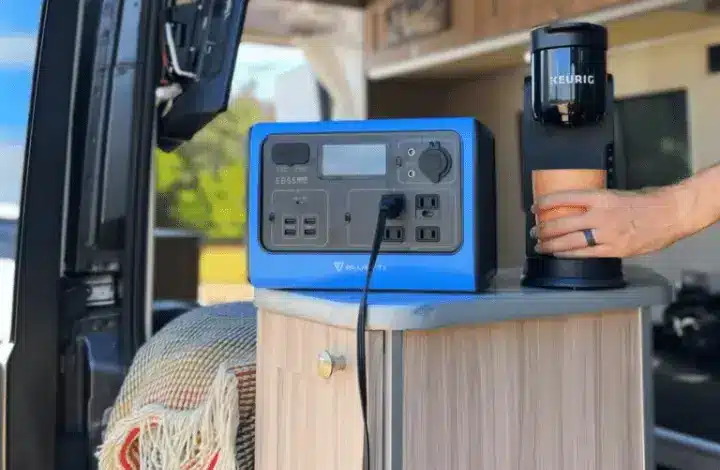Downsizing Your RV: Top Reasons for When, Why and How
Most of us don’t get it “just right” when we purchase our first RV. There’s a little bit of a Goldilocks effect that happens the longer you RV. Maybe we need a little bit more space, or maybe we could live with less. When it comes to downsizing your RV, I think most people choose to do so to simplify their RV life.
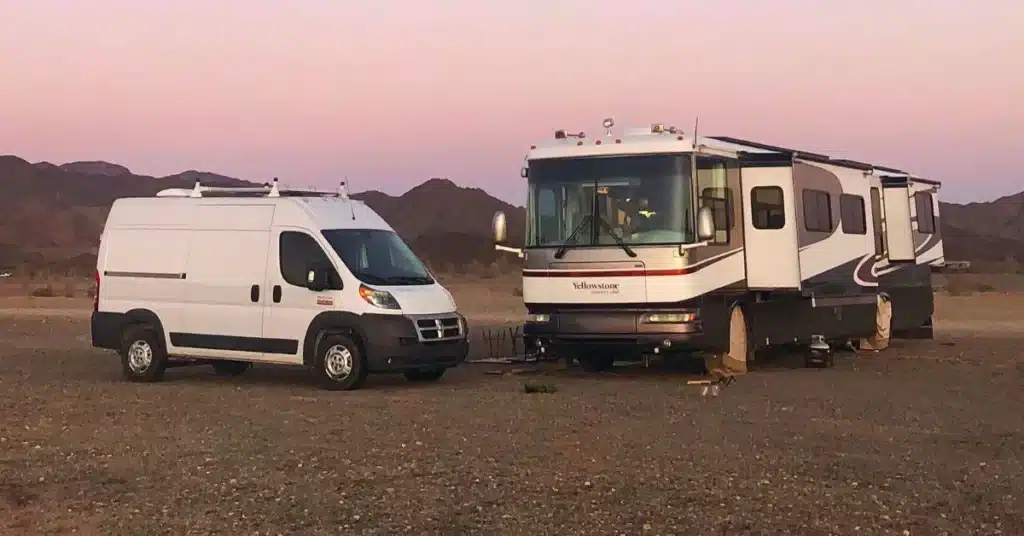
When I became interested in RVing and was shopping for my first travel trailer, I got a lot of advice about what to look for in my perfect RV. The best of that advice came from my boss who told me to go as small as possible.
The Right Size Rig Depends on Your Lifestyle
OUTDOOR EXPLORATION
He explained that when RVing you want to spend most of your time outside. The focus is on the destination, not on the inside of the RV. This was good advice for when I was only using my RV part-time.
THE NEED FOR AN OFFICE
When my husband and I started full-time RVing together, we knew we needed two separate office spaces. We’re both still working full-time and take lots of phone and video calls. We knew it wasn’t possible for us to both work from our dinette and maintain a professional work environment. So we had to upgrade from my travel trailer to a motorhome to get the space we would need for full-time living.
READY TO DOWNSIZE
Now, of course, we’re certain we could go smaller and talk about downsizing often. For us, downsizing means more freedom, more mobility, and less stuff weighing us down. In this article, we’ll explore the reasons and benefits of downsizing your RV, along with when and how to make this important decision.
Why Downsize Your RV?
First, let’s take a look at some of the reasons why you might want to downsize your RV. I’m sure there are hundreds of potential reasons to downsize, but I’ll focus on the top four that have been influencing our consideration as long-time RVers.
Financial Freedom
Downsizing your RV may potentially offer significant cost savings. Larger RVs often come with a bigger price tag, not only for the initial purchase but also for ongoing expenses like maintenance, insurance, and fuel costs.
A smaller RV is often easier and more cost-effective to maintain and repair. Smaller rigs are less complex, and finding replacement parts or services is generally more straightforward.
By downsizing, you can free up funds for other travel experiences, or simply enjoy a more financially stress-free life on the road.
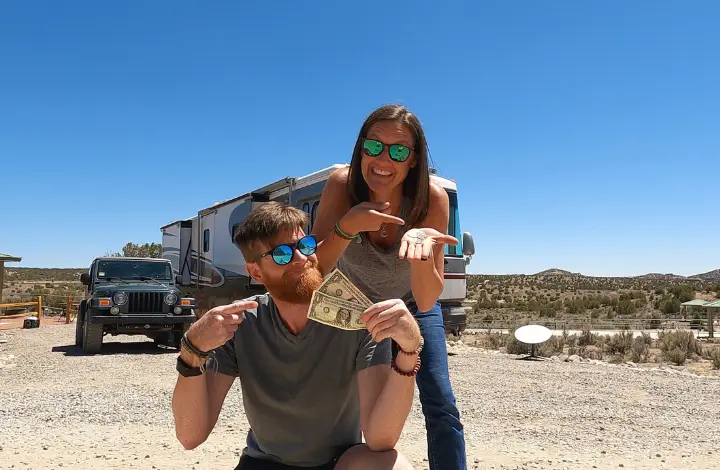
Easier Maneuverability
One of the biggest challenges of owning a large RV is navigating it through traffic, downtown areas, gas stations, and small RV parks.
Downsizing to a smaller rig makes it easier to maneuver and find parking, which can certainly reduce your travel day stress level.
Improved Fuel Efficiency
Large RVs are notorious gas guzzlers, which can put a significant dent in your travel budget. A smaller RV or trailer typically offers better fuel efficiency. That will allow you to explore more while spending less at the pump.
REDUCE IMPACT ON THE ENVIRONMENT
This is also better for the planet and will reduce your environmental impact. Life on the road is generally not considered eco-conscious, but even a small improvement in fuel efficiency can make a big difference over many miles.
Simplified Life
Downsizing your RV can simplify your life in more ways than one. With less space, you’ll be compelled to declutter and prioritize what’s truly essential.
This can lead to a more streamlined and minimalist lifestyle, which many RVers find liberating. Though it’s a less tangible change in your life, the peace of mind from simplifying can be profound.
Related Reading
When to Downsize Your RV
Changing RVs is a bit of a pain in the butt, especially if it’s your primary residence. One factor is that you will have to move all of your stuff from one RV to another. There’s also a lot of administrative and other requirements, from a new registration to updated insurance to potential upgrades or repairs.
Let’s talk about some of the common life stages and moments that may cause one to consider downsizing. Note how some of these moments may be a better time than others to downsize your lifestyle.
Empty Nesters
If you started RVing with a larger rig to accommodate your family and now find yourself traveling as a couple or on your own, downsizing makes perfect sense. A smaller RV is often more comfortable and manageable for solo or couple travel.
Some shoppers still find themselves looking for an RV that could accommodate guests, adult children or grandchildren. We received good advice to buy an RV that suits us, rather than for potential family or visitors who might someday join our travel adventures.
Shopping for your personal lifestyle will help keep your RV choice focused on what you really need.
Changing Travel Preferences
Our travel preferences have evolved over time. We started out staying exclusively in RV parks with large sites that were easy to navigate. Today, we prefer boondocking and smaller campgrounds that are more in nature, like state parks.
For example, if you initially planned to stay at RV resorts but now prefer state and national parks, a downsized rig can help you access more campgrounds with size restrictions.
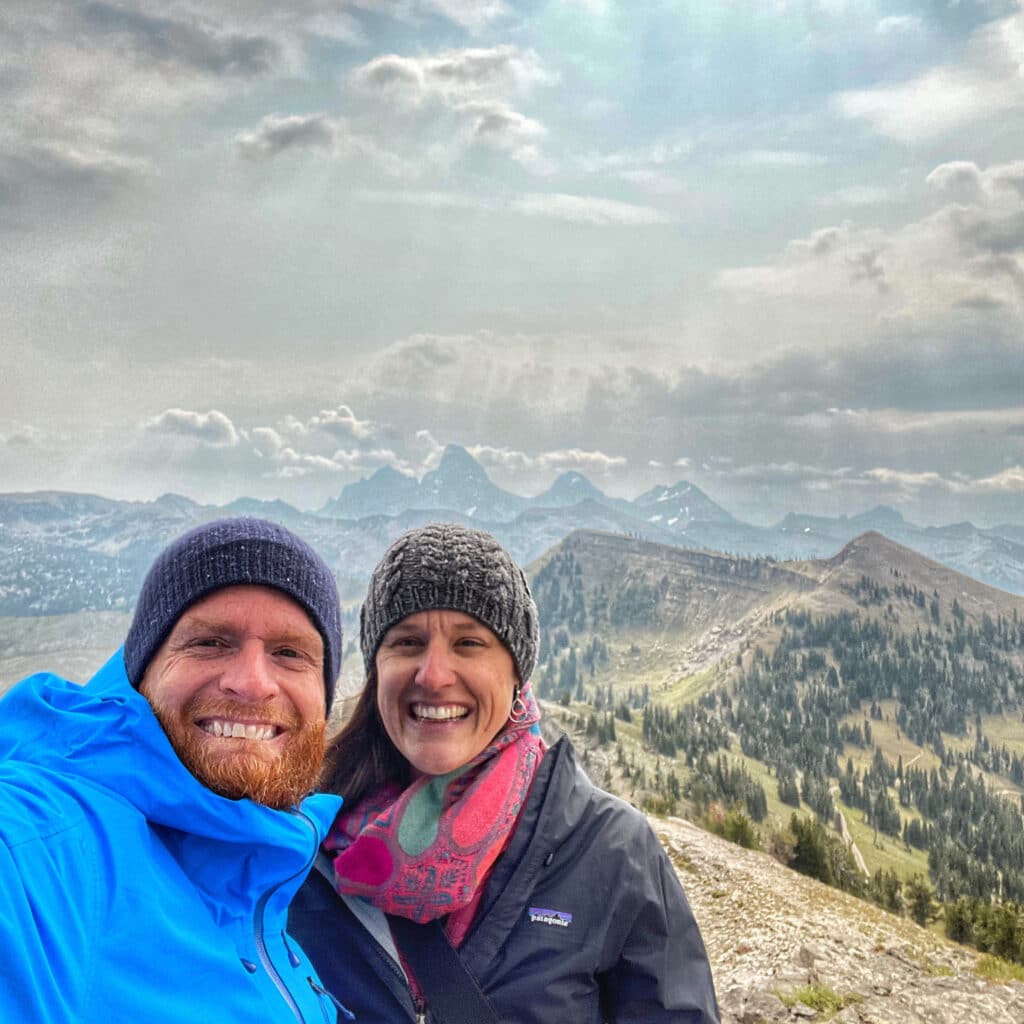
SMALLER RIGS HAVE GREATER PARK ACCESS
Many national parks have a size limit of 32 feet. So if national parks are a priority for you, you may want to downsize. The biggest adventure we’ve been weary to do in our 42-foot motorhome is Baja, Mexico. The ability to easily travel throughout Baja is one of the top reasons we may consider a smaller RV.
Related Reading: Choosing the Best RV for Your Boondocking Adventures
Financial Considerations
As we discussed in the previous section, downsizing your RV can provide more financial freedom. If you’re experiencing unexpected expenses or simply want to free up more of your budget for other adventures, moving to a smaller RV can be part of a smart financial plan.
In our case, our RV is 20 years old and the cost of possible repairs are what scare us. The idea of having a higher monthly payment for the security of knowing there isn’t a big repair expense coming down the pipe is pretty appealing. Of course, it all depends on your financial situation.
Maintenance and Repairs
Owning a large RV often means dealing with complex systems and components, which can potentially lead to costly maintenance and repair bills. If these costs are becoming a burden, downsizing can reduce these financial headaches.
When our RV broke down in a parking lot outside Palm Springs last winter, we got a quote of over $5,000 to get back on the road. I told my husband, “let’s just leave it here.” Sometimes the maintenance can feel overwhelming and not worth it. This was especially stressful for me when it was our only home. Downsizing may be a potential solution if you’re feeling the same way.
LESS GADGETS CAN REDUCE REPAIR COSTS
As mentioned above, smaller rigs are less complex. You can do your research to find an RV with fewer bells and whistles. An RV built with simpler systems will be less costly to repair.
If you’re old enough to remember why the expression is “roll down the windows” you can easily understand this point. Find a smaller rig with fewer computerized gadgets and you’ll notice your repair bills are easier to manage.
How to Downsize Your RV
Okay, we’ve explored the when and why of downsizing. Maybe you’re ready to take the next step. Here are some helpful step-by-step instructions.
Assess Your Needs
The first step in downsizing your RV is to assess your needs. Consider what features are essential for your family. For some, a compact Class B campervan is sufficient, while others may opt for a smaller Class C motorhome or travel trailer.
Evaluate your travel style and requirements to determine the right size and type for your new rig.
Take Inventory and Declutter
Downsizing is an excellent opportunity to declutter your belongings. Take an inventory of everything you have and identify what you can live without.
A good rule of thumb is, if you haven’t used the item in a month or two, you could probably get rid of it. One exception to that rule is seasonal clothes, especially winter jackets and warm gloves.
Sell or Donate Unnecessary Items
To free up space and collect some funds for your downsizing journey, consider donating or selling items that you no longer need. Poshmark, Ebay, garage sales, thrift stores and local charities are excellent places to start.
Research and Shop for Your Next RV
Once you have a clear idea of your needs and budget, research and shop for a smaller RV. Consider factors like floor plan, storage space, and amenities that are important to you. Attend RV shows and visit dealerships to get a feel for the options available.
Plan Your Move to a Smaller Rig
If you are a full-time RVer, planning out when and where you will make the actual transition is important. It might be helpful to rent a Uhaul trailer or a PODS. You can move everything into the storage box until you have your new RV.
Or, if the dealership will let you, perhaps you can swap your stuff over in the parking lot. Personally, we got two spaces next to each other at an RV park for a whole week, and we slowly transitioned all of our items from one RV to the other (or to the dumpster).
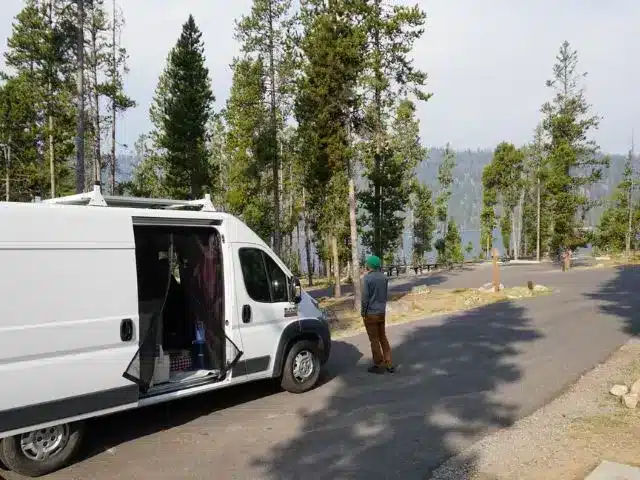
Are You Ready to Downsize RVs?
Downsizing your RV is a personal decision that depends on many factors, including your budget, lifestyle, and travel preferences. Whether you’re looking to simplify your life, save money, or enhance your travel experience, downsizing can be a practical and fulfilling choice.
By understanding when and why to downsize and following the steps to make the transition, you can decide what is right for you.
Ultimately, downsizing is about aligning your RV with your evolving needs and travel aspirations. We hope this article helped you navigate this important decision.
Happy trails!
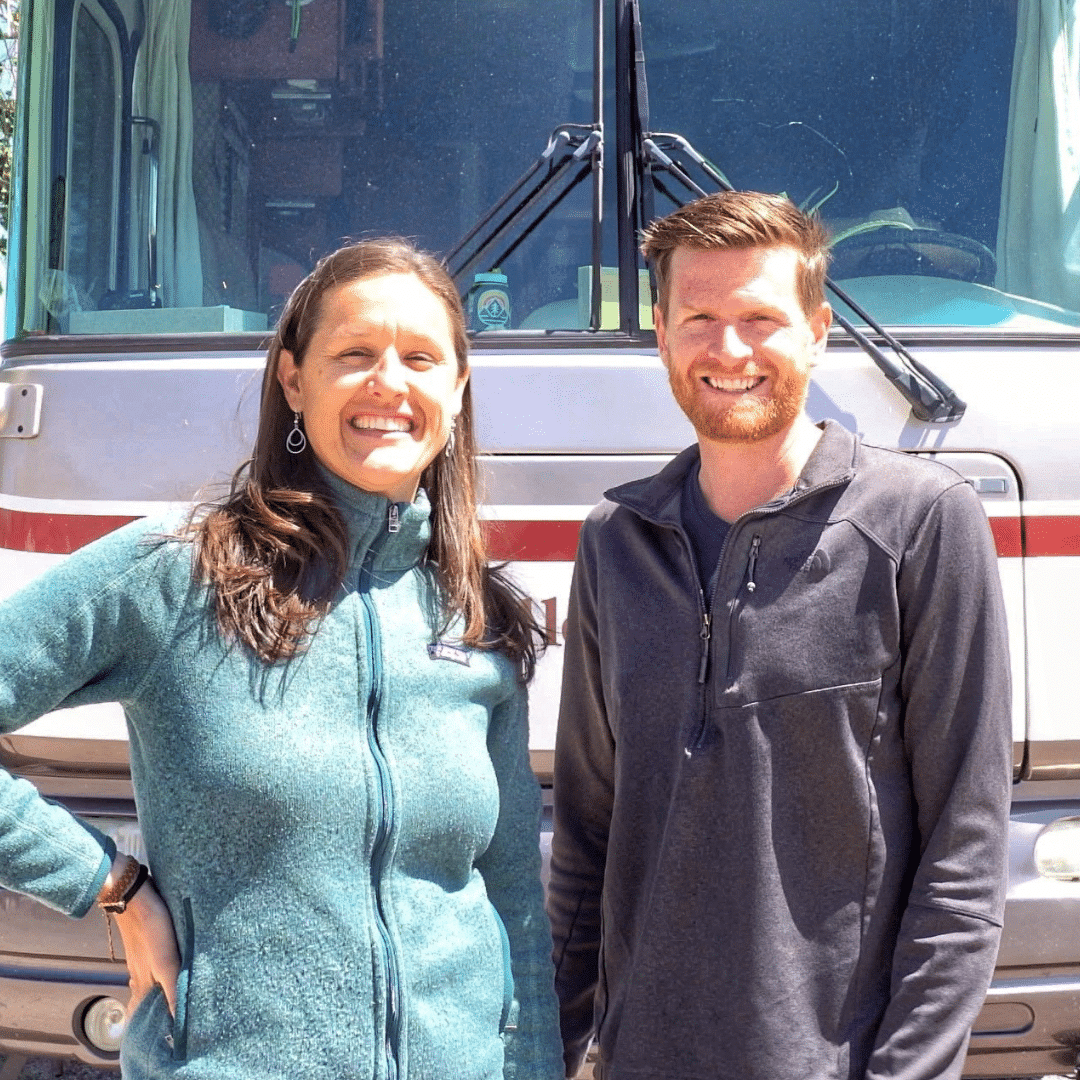
Kristen Bates lives & works from her RV, primarily boondocking off-grid. She owns and operates a women-led travel company, Legit Trips. Kristen loves to explore new places and inspire others to do the same. If she’s not typing away on her laptop, she’s off on an adventure- hiking, biking, or SUP boarding. You can follow her RV adventures @PerpetualMoves and learn more about her travel company at LegitTrips.com.


